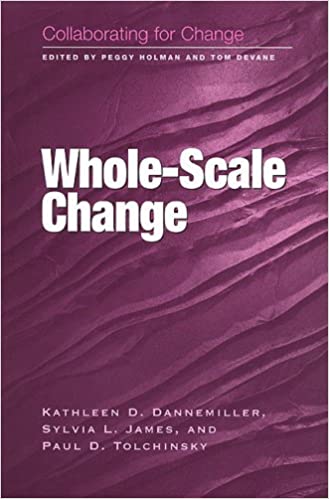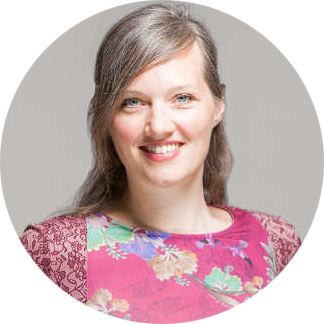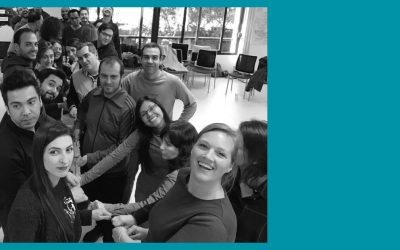Insights From Natural Leaders: With Paul Tolchinsky
Leaders are everywhere!
Resourceful leaders are accomplishing great advances in different areas and in different ways every day. From leading small companies or a local restaurant to running a nonprofit choir or sports club, we can always find inspiring natural leaders close to us.
We can learn so much from them!
That’s why I’m interviewing people that have touched my soul: from neighbors, small business owners to friends & colleagues that inspire me to spread the wisdom & insights of our common ability as a human being to lead, influence, and impact people around us.
In our first video Insights From Natural Leaders: With Paul Tolchinsky, I had a great talk with Paul about connecting and listening as vital leadership skills.
Paul has extensive experience in managing and facilitating large system change efforts; new plant design and start-ups; redesigning existing manufacturing facilities, particularly where unions are involved. He is the Managing Partner of Performance Development Associates, a boutique consulting company with resources across the globe.
He is internationally known as a pioneer in the development of Whole-Scale (Whole-System) Approaches to change. Paul holds a Ph.D. in Organization Behavior and Design from Purdue University. As you can see below, Paul is also the co-author of Whole Scale Change (Collaborating for Change).

You will find that he is an entertaining storyteller with a great sense of humor. I think you’d like to listen to his stories and learn from him as much as I have done since I’ve met him! Enjoy! There’s a bit of laughter waiting for you in this video!
Here are some of my favorite quotes from the interview:
“I don’t feel like as a leader, I have to have the answer. I might have an opinion, but I trust that the wisdom is in the system, and I trust people to do the right thing and to guide us along the right path.”
Paul’s WHY:
“I would say it’s creating places of work that are interesting, meaningful, and fun. On my tombstone, this will be my tagline.”
Follow along with the transcript, below, if you like.
——–
Maike: Welcome to this interview. I’m Maike, and today I’m interviewing Paul Tolchinsky. Paul has had more than 40 years experience in consulting to major corporations. In fact, I met Paul last year in Potsdam in Germany, in one of his trainings about large-scale interactive processes. So I thought I want to interview Paul because I believe he’s got some great natural leadership skills that I witnessed, a great sense of humor, and I’d like to ask him three questions in relation to leadership. Hi, Paul.
Paul: Hello there, Maike. How are you doing today?
Maike: Fine. I’m very excited, and I really want to hear some insights from you about leadership. So first of all, let me ask you one thing: What is your main strength as a leader?
Paul: You know, I think the biggest strength of any leader is actually the ability to listen, right? I think that’s number one. If you’re not listening, if you’re not listening to the system, if you’re not listening to your people, if you’re talking too much, you’re not hearing, and then you’re not leading, number one. Number two, from my perspective, great leaders have always been the people who inspire other people. A good leader, a great leader is an attractor and attracts people. I think I attract people. I’m a good networker, but I’m an attracter. I listen, I inspire. I think what I’ve always tried to do in life as a leader is leverage energy. I’m always looking for where’s the energy, where’s the energy people; do they smile, do they laugh, do you get their attention, do you see it in their eyes? And I think as a leader, your ability to leverage energy in a particular direction, to move something forward is critical. I think my strength is I come from a place where I believe that the wisdom is in the system. I don’t feel like as a leader, I have to have the answer. I might have an opinion, but I trust that the wisdom is in the system, and I trust people to do the right thing and to guide us along the right path. So I listen, I inspire, I leverage, and I trust the wisdom in the system. I think that’s what I bring to it, and as a result of that, I think that’s what attracts people to me, and they’re willing to listen and follow as a result.
Maike: So another question about impact: What is your big ‘why’? Why do you do what you do?
Paul: [laughs] I discovered a long time ago– I thought everybody needs a purpose, right? That’s the ‘why’. And I think why do you do what you do, why do you believe what you believe– I think my leadership ‘why’ is to create places of work that are interesting, meaningful, and fun. If I can do that, as a leader, then they’re almost always profitable and productive. And so I think my ‘why’ is creating places of work where people wake up in the morning and they’re excited about going to them, looking forward to spending a day at, as opposed to dreading the moment, dreading the thought. People spend such a significant part of their lives in the context of some work situation, where there’s leadership, bosses, et cetera. I think if you don’t create a place of work that people look forward to coming to, you’ve lost [a lot? [00:04:17.11], I think. So that’s always been my ‘why’. I would say it’s creating places of work that are interesting, meaningful, and fun. On my tombstone, this will be my tagline.
Maike: [laughs] Okay. So you’re someone who’s got so much experience. You’ve worked all over the world, with big corporations and loads of leaders. So when you look at the world today and you connect to our future leaders, like maybe even young leaders, what kind of advice would you want to give them?
Paul: I think the challenge for a leader is– we’ve trained leaders, myself included, to be the people with the answer. We’re the smartest, we’re the brightest, we’re the up-and-comers. There was a recent LinkedIn blog about ‘Should you hire leaders as people-people, or for their technical skills?’ And I think that the challenge in today’s world is to never– my advice is if you’re in a room where you’re the smartest person, leave quickly. You’re in the wrong room. I think leaders find people who are smarter than them, don’t have egos where they have to feel like they’re the smartest in the room, that they have the answer, that everybody has to look to them. And I think as a leader, if you find yourself in a situation where everybody thinks you’re the smartest person in the room, that’s a horrible position to be in, as a leader, when ownership and commitment only come from cocreation. So if we don’t cocreate the answers together, then I think– and that’s a challenge everywhere in the world, because every culture in the world has a different perspective about leading, paternalism or dictatorship. In the world today, everybody talks about everybody leads and self-management. And so I think, from my point of view, I try never to be the smartest person in the room. And if people think I am, I try to dispel that myth as quickly as possible, and I think that works in every culture. People respect– the older I get, the greyer I get, the more people think I have the answer because I’ve been there and done that. But my answer doesn’t necessarily equate to the right answer; it’s just my point of view. So I think that’s the number one thing: If you find yourself the smartest person in the room, get out as fast as you can and go find people who are smarter than you. So my first advice is don’t be the smartest person in the room. My second piece of advice is in today’s world, people try to simplify things, we try to decomplexify. And I think as leaders today, we have to be able to embrace complexity. We have to be able to look at all the pieces in all the puzzles and hold them in suspended animation, if you will. And I think in today’s world, a good leader is one who can hold all of that complexity, embrace it, look for simple solutions, or look for simplicity in the complexity. So I think that’s the second thing, and the third thing I thought is the secret to leadership everywhere in the world is engagement. It’s engagement. If you engage people in conversation, if you listen, if you ask the right questions, if you pick their brains, help them search, help them discover, people always feel good about the interaction with you. And so when I thought about advice, those would be my three things: Never be the smartest person in the room. Embrace complexity, because there are no systems that are not complex, and so one has to have a systemic point of view, one has to be able to embrace that and hold it. And then the third is if you engage people in conversation, in dialogue, in exploration, in dreaming, then leadership is really easy. It’s not quite so hard as people think it might be.
Maike: Well, thank you for your answers. Honoring the complexity of the world and all of the emails and messages people are getting while they’re listening to this video interview [laughs]. I could engage quite easily in any of those topics, particularly the systemic point of view when it comes to leadership, but I think I’m just going to leave people with your words and your wisdom, and thank you so much for your time and your insights and all the knowledge you’ve brought and bring still to the world. So thank you for the interview.
Paul: It’s my pleasure. I’m happy to do it, and I enjoy it. I look forward to talking some more.
Maike: Thank you.

MAIKE STOLTE
Executive Coach. Consultant. Trainer. Facilitator.
Categories
Contact us

Burnout. COVID. New Normal: How to get yourself back into balance & recover!
By now, most of us share a similar feeling: we feel drained. For months now, we have been bravely facing the Covid-19 pandemic. I think it’s fair to say that it has taken its toll on us. No matter your context, you may have been dealing with the stress of the...
Relational leadership: Influence is trusting and being trusted
We are our relationships. When we foster positive relationships, we create positive environments, develop positive projects and bring positive change to the world. This power of relationships is the base of relational leadership, focused on the leader’s ability to...
Insights From Natural Leaders: With Yasmine Khater
We can always find inspiring natural leaders close to us! In this series of interviews, I’m talking to people who have touched my soul: small business owners, neighbors, friends & colleagues. Those who inspire me to spread the wisdom & insights of our common...





0 Comments